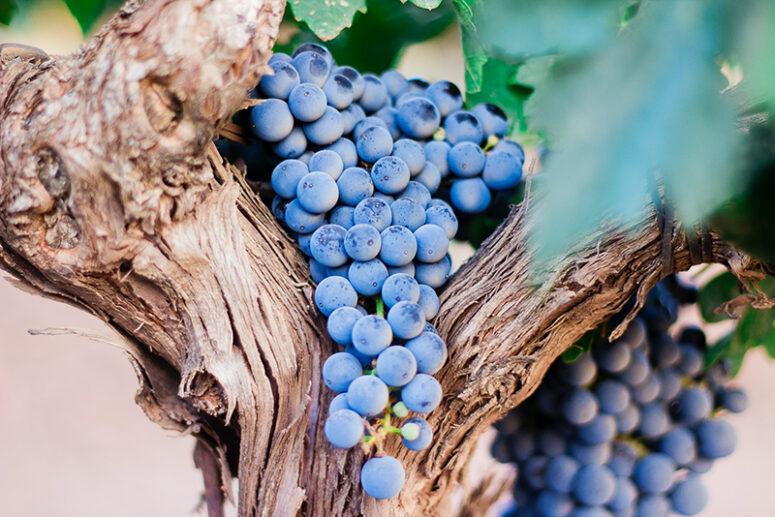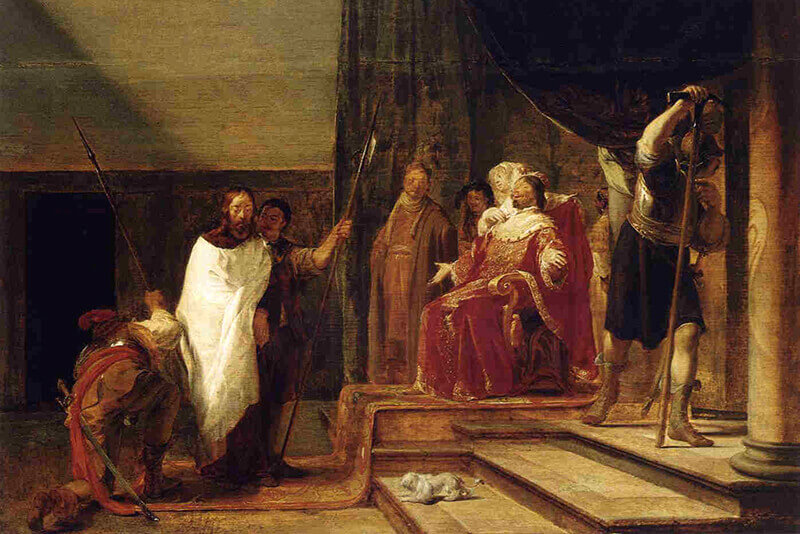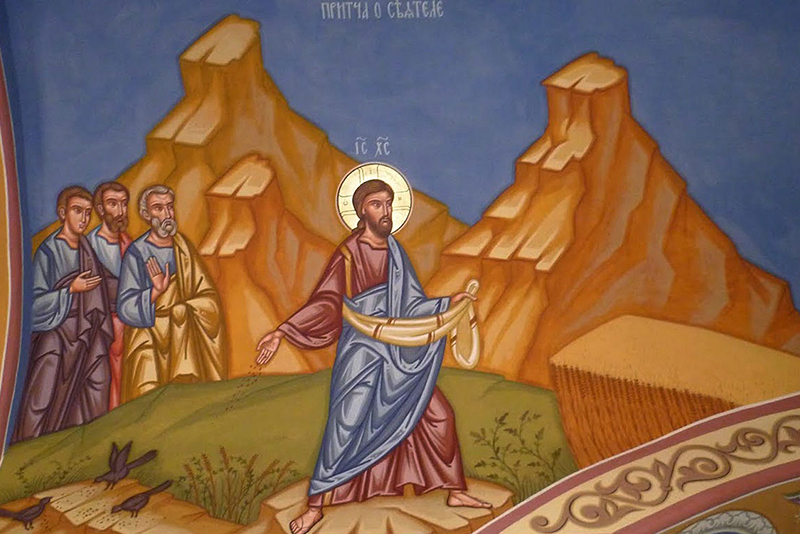
John 14:27 – 15:7
The Lord describes the unity of people with God from various angles. In contrast with the one about the sheep knowing the voice of their shepherd and following him everywhere, today’s parable draws the following image: “I am the vine, and My Father is the Vinegrower… I am the Vine, and you are the branches.”
Each comparison has its drawbacks. The sheep, although endowed with freedom, do not form perfect unity with the shepherd. The branches, although inextricably linked with the vine, are deprived of their freedom. But the Lord prayed: “Father! … So that they may be one as We are one ”(John 17:22). Today’s readings show us the connection between being inextricably connected with the Vine and remaining free. We also see how the Heavenly Vine-grower prunes His branches.
We see St Paul the Apostle on his way to Jerusalem. He is going there “ as a captive to the Spirit” (Acts 20:22), that is, being nourished and guided by the Vine. But we also see the same Vine sprouting in the opposite direction. The same Spirit that leads him is testifying “in every city that imprisonment and persecutions are waiting” for him (Acts 20:23). The same happens in Tyre, when the disciples “through the Spirit … told Paul not to go on to Jerusalem.” (Acts 21: 4). In Caesarea, a certain prophet Agabus “took Paul’s belt, bound his own feet and hands with it, and said, “Thus says the Holy Spirit, ‘This is the way the Jews in Jerusalem will bind the man who owns this belt and will hand him over to the Gentiles.’” Hearing this, everyone began to urge Paul not to go to Jerusalem. And yet, Paul decides to go. Is he not thereby resisting God’s will?
To answer that we need to differentiate between warning and prohibiting. Learning about an impending danger related to his plans, a person begins to weigh more carefully all the pros and cons. Sometimes after doing so he will say, “Why, in fact, do I need this?” and give up. Often this means that he was motivated not by the desire for good, but by pride, vanity or self-interest, which was ultimately outweighed by cowardice. This is a sign of a branch that can bear no fruit. “My Father is the Vinegrower,” says the Lord. “He removes every branch in me that bears no fruit.”
In response to all the attempts to discourage him, Paul invariably says, “What are you doing, weeping and breaking my heart? For I am ready not only to be bound but even to die in Jerusalem for the name of the Lord Jesus.” Here is a genuine fruitful branch of the true Vine, cleansed of all extraneous and “passionate” impulses.
What about the rest of the brethren? Do they resist the Spirit leading Paul to martyrdom? No, they are also guided by it. The Spirit wants them to cherish their Apostle as a gift from God. But when “he would not be persuaded”, they understand what he sees as his personal good. Perhaps, remembering the words of the Lord: “If you loved me, you would rejoice that I am going to the Father…”, they “…remained silent except to say, ‘The Lord’s will be done.'” The Winegrower cleanses their love for Paul, so that they too would bear fruit.
“Now the Lord is the Spirit, and where the Spirit of the Lord is, there is freedom.”(2 Cor. 3:17). In spite of their perfect devotion to Him, the servants of the Lord never lose their identity, their uniqueness and their freedom. The Lord does not turn them into blind instruments of His will. He always honestly and clearly gives them a choice. And time after time they soberly and consciously choose Christ.
Translated by The Catalogue of Good Deeds
Source: https://azbyka.ru/otechnik/Vyacheslav_Reznikov/propovedi-na-kazhdyj-den/7_2




